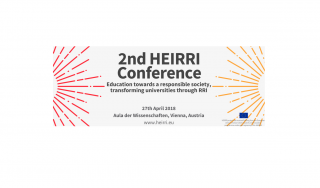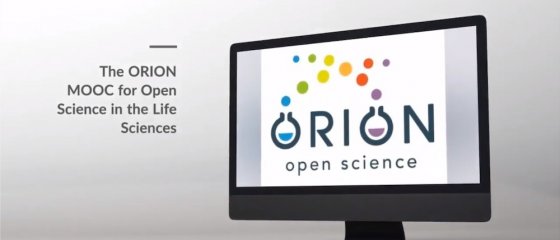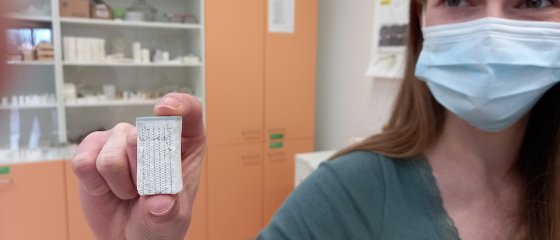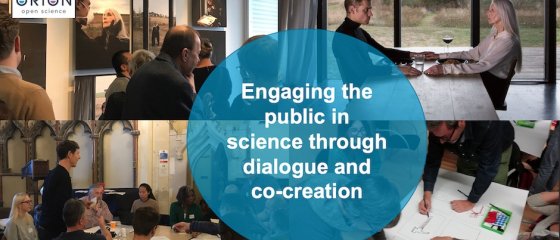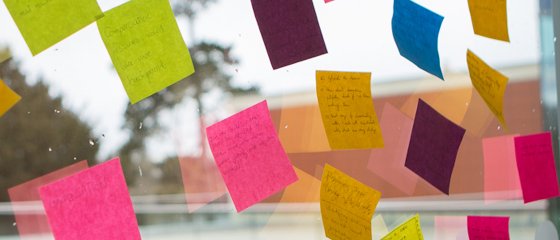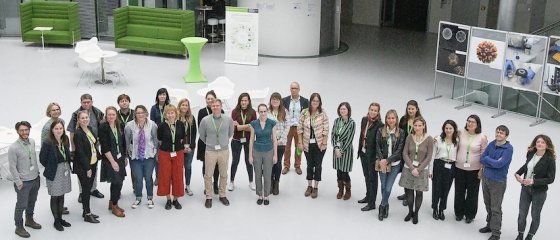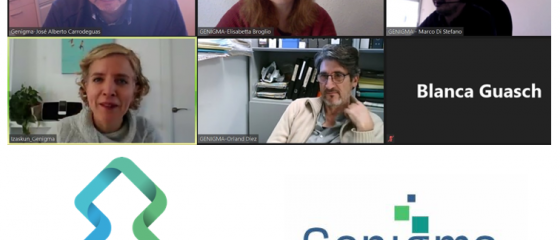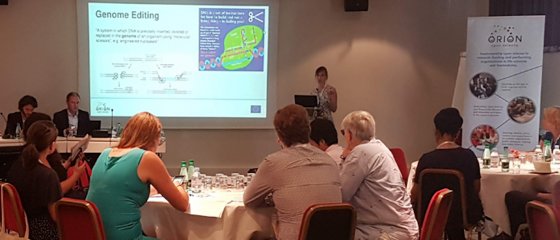Welcome to the ORION training session on understanding the challenges and benefits of Open Science at the Living Knowledge Conference in Budapest.
RRI
Dr Luiza Bengtsson and Dr Emma A Harris from the Max Delbrück Center for Molecular Medicine in the Helmholtz Association (MDC) will be giving a series of brief talks from our colourful table in the 'Speed Dating' sessions about ORION Open Science Training answering questions.
The first workshop in preparation for ORION Public Dialogues took place on 22 February at the Babraham Institute in Cambridge. 15 delegates from all of ORION's partner institutions attended the event.
Become the next Orion Open Science Champion
The ORION MOOC for Open Science in the Life Sciences is now open to follow at anytime. The course is open for anyone interested in Open Science and consists of six modules covering different aspects of Open Science. Take the chance to become the next Orion Open Science Champion!
Continuous support is a key to success - ORION grant supports innovative cancer research
The ORION partner and non-profit Czech organisation JCMM (South Moravian Centre for International Mobility), was established in 2005 to support and stimulate an influx of students into the region and counteract the brain drain of scientific talent occurring at that time. Since its foundation, the range of JCMM activities has extended to now support talented young people, students, fellows and teachers. Within the ORION regional call for open science projects on local societal challenges, JCMM distributed 10 grants in 2019 to master/Ph.D.students to carry out projects containing strong elements of open science.
Engaging the public in science through dialogue and co-creation
Global societal challenges together with growing public interest in science present both opportunities as well challenges for the research world. Open Science is a way to ensure that citizens are involved in research, and that the views of different stakeholders are taken into consideration when shaping science agendas and research projects. How can science communication practitioners, researchers, policy makers and research funding bodies successfully engage with the public, and ensure that their values and interests are taken into account?
Exploring public opinion on genome editing
At the core of the ORION project is co-creation, which involves collaborating with different groups of people (public, policy, industry) to come up with new ideas to support and increase the impact of scientific research. Over the next two years the Babraham Institute, together with MDC in Germany, VA in Sweden, and CEITEC in the Czech Republic will launch a co-creation exercise on emerging technologies.
From ideas to real life projects: ORION Open Science 2nd Annual Meeting
“The ORION Open Science project has helped CEITEC both internally to introduce new processes within our institute, and externally to lead the way to Open Science in Central and Eastern Europe” said Jiri Nantl, Director of CEITEC Masaryk University in his welcome speech at the ORION Open Science 2ndAnnual meeting which took place in Brno, Czech Republic on 6-7 May 2019. All ORION partners and associate partners gathered to share and exchange knowledge and experience from project activities such as: stakeholder dialogues on Open Science, Citizen Science projects, public engagement and trainings conducted during the first two years of the project.
Genigma joins NEWSERA Academic Scientists Lab
The ORION citizen science project Genigma project has been selected as part of a NEWSERA initiative to increase the uptake of citizen science projects among academic researchers across the EU. This coincides with the launch of the Genigma game app which has been in development for two years by the Centre for Genomic Regulation (CRG).
How do we create additional value for research?
The answer to this question is by incorporating different views in problem solving processes. This is precisely what we sought to explore during the ORION workshop on genome editing research at the Euroscience Open Forum (ESOF 2018) in July. With over 4,000 delegates, ESOF is the largest interdisciplinary science meeting in Europe and was the perfect place for this experiment, offering a unique opportunity for interaction and debate with scientists, innovators, policy makers, business people and citizens.

